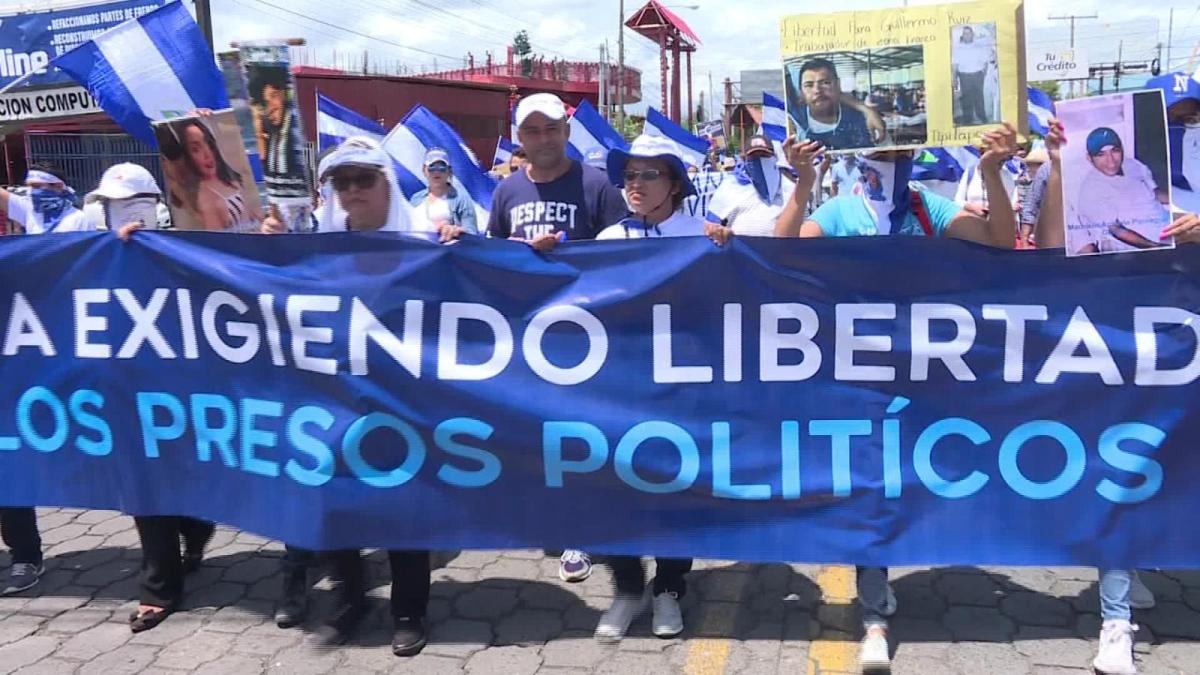150 political prisoners were released in Nicaragua, but 600 remain incarcerated
Washington, DC, March 15, 2019. The government of Nicaragua released 150 political prisoners from prison and officially put them under house arrest in the last three weeks. The release occurred […]

Washington, DC, March 15, 2019. The government of Nicaragua released 150 political prisoners from prison and officially put them under house arrest in the last three weeks. The release occurred as a part of the negotiations held by a governmental delegation and members of the Civic Alliance for Justice and Democracy to seek a way out of the human rights crisis that started in Nicaragua in April 2018.
The release took place in two different moments. Today, the Ministry of Interior (Migob, for its initials in Spanish) published a list of 50 people (8 women and 42 men) who, as of today, had their detention conditions changed. Included in the list are the student leaders Yaritza Rostrán and Levis Artola and students from Matagalpa, Nelly Roque and Solange Centeno.
“The prison in its entirety is appalling, but there are many women who are real warriors,” Rostrán told reporters, according to La Prensa newspaper.
Families of political prisoners and their defenders have reported on several occasions that they suffer cruel and inhuman treatment, discrimination, sexual violence, lack of medical attention, threats, and harassment by prison authorities.
Another 100 prisoners of conscience (12 women and 88 men) were released on February 27th, the same day that negotiations started again after the National Dialogue was suspended in June 2018 as a result of the continued repression of protesters by police and parastatal agents.
Negotiations
The release of the last group of prisoners that took place today occured after the Civic Alliance retired a week ago from the negotiating table due to the refusal of the Nicaraguan government to give “credible gestures” to achieve true changes. However, on Wednesday, March 13th, authorities announced that they would release an “appreciable amount” of people, which prompted negotiations to resume on Thursday.
“The release of political prisoners is a deciding factor for the smooth running of the negotiation process with the government,” the president of the American Chamber of Commerce of Nicaragua (Amcham) and delegate of the Civic Alliance, Mario Arana, told the digital media Confidencial yesterday.
According to figures from the Pro-Liberation Committee of Nicaraguan Political Prisoners, at least 777 people are deprived of their liberty for having exercised their right to protest. This means there are still more than 600 people imprisoned for exercising that human right.
According to the government, the 150 people recently released from prison were not political prisoners because they committed “crimes against common security and crimes against public tranquility” during anti-government demonstrations.
This decision to send home 50 Nicaraguans who were imprisoned for exercising their right to protest civically coincides with the refusal of police to allow the march called by Blue and White National Unity on March 17th to take place. The march was called to demand the unconditional release of all the political prisoners. The decision also coincides with an increase in police presence in the capital to intimidate the people and persuade them not to go out to protest.
Since April, when a human rights crisis began in Nicaragua as a result of state repression of civic demonstrations throughout the country, the Inter-American Commission on Human Rights (IACHR) reports that at least 325 people died and another 2,000 were injured.
Race and Equality demands the immediate release of all political prisoners in Nicaragua.

